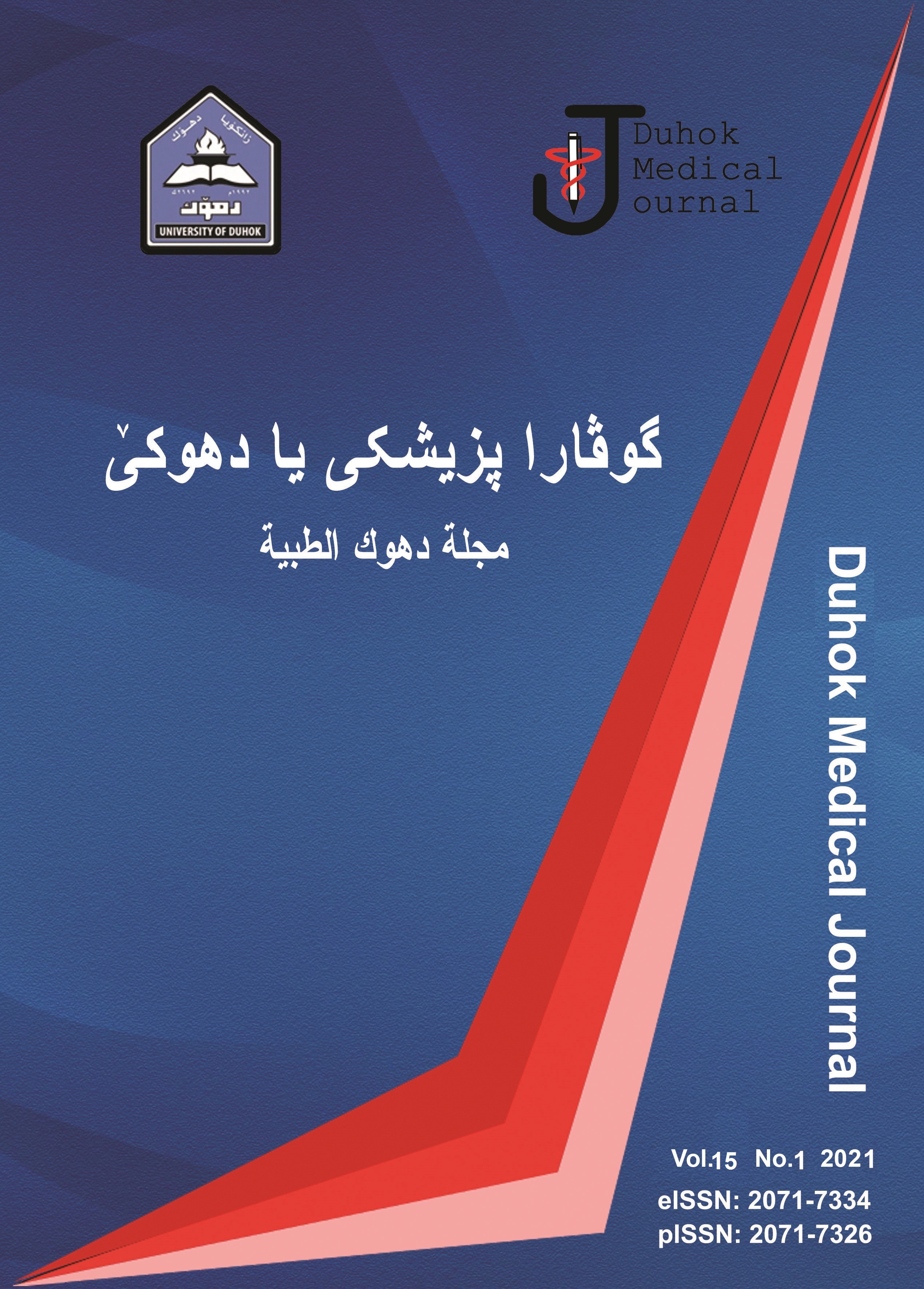PRE-RAMADAN COUNSELING AMONG TYPE TWO DIABETIC PATIENTS WHO DECIDED TO FAST RAMADAN
Abstract
https://doi.org/10.31386/dmj.2021.15.1.9
Background: Ramadhan is the fasting month among the Muslim population, and fasting is one of the five pillars of the Islamic religion. During Ramadhan, there is a major change in the meal times, which significantly affects the body's metabolism and hydration status, increasing the risk of hyper and hypoglycemia in diabetic patients. Probably Pre-Ramadan counseling will improve the rate of these complications.
Patients and methods: This is a prospective cross-sectional study, which included 307 Muslim patients with type 2 diabetes mellitus who decided to fast Ramadan during 2019 in two cities in the Kurdistan region of Iraq. Participants were categorized based on whether they had pre-Ramadan counseling or not.
Results: The mean age of our patients was 55.24, and 71% of patients were females; the mean duration of diabetes mellitus was 80.76 months. Most patients enrolled in this study fasted the whole month (the mean was 26.86 days). Less than 20% had pre-Ramadhan counseling. The majority of patients were not ready to break the fasting (61.6%). Hypoglycemic attacks were less common in patients who had undergone pre-Ramadan counseling (p-value 0.006). There was also no significant correlation of pre-Ramadan counseling with the level of HbA1c (p-value 0.401); however, there was a significant correlation of pre-Ramadan counseling with both serum cholesterol, serum LDL, and hypoglycemic attacks (p values 0.13, 0.002, and 0.006), respectively, with no any significant correlation with triglycerides and HDL levels (p values 0.687 and 0.698) respectively.
Conclusion: Pre-Ramadan counseling is very vital for diabetic patients who decided to fast Ramadan. Pre-Ramadan counseling is a good tool to inform patients about if they are fit to fast or not, the likelihood of complications during Ramadan, and how to manage them (principles of self-management). We recommend a structured diabetes education to decrease the attacks of hypoglycemia. A patient will know when to monitor his/her blood sugar and when to breakfasting.
Will know when to exercise, when to monitor his/her blood sugar and when to breakfasting.
Downloads
References
2. Hassanein M, Al-Arouj M, Hamdy O, Mohamad W, Bebakar W, Abdulrazzaq A, et al. diabetes, and Ramadan: practical guidelines. Diabetes Res. Clin. Pract. 2017;126:303-16.
3. Al-Arouj M, Assaad-Khalil S, Buse J, Fahdil I, Fahmy M, Hafez Sh, et al. Recommendations for Management of Diabetes during Ramadan: update 2010. Diabetes Care. 2010;33(8):1895-902.
4. Salti I, Bénard E, Detournay B, Bianchi-Biscay M, Le Brigand C, Voinet C, et al. A population-based study of diabetes and its characteristics during the fasting month of Ramadan in 13 countries: results of the epidemiology of Diabetes and Ramadan 1422/2001 (EPIDIAR) study. Diabetes Care. 2004;27(10):2306-11.
5. Ibrahim M, Abu Al Magd M, Annabi FA, Assaad-Khalil S, Ba-Essa EM, Fahdil I et al. Recommendations for Management of Diabetes during Ramadan: update 2015. BMJ Open Diabetes Research and Care. 2015; 3(1):e000108.
6. Ahmad J, Pathan F, Abdul Jaleel M, Fathima FN, Raza SA, Azad Khan AK, et al. Diabetic emergencies including hypoglycemia during Ramadan. Indian J. Endocrinol. Metab. 2012; 16(4):512.
7. Kaplan W, Afandi B. Blood glucose fluctuation during Ramadan fasting in adolescents with type 1 diabetes: findings of continuous glucose monitoring. Diabetes Care. 2015;38(10):e162-e3.
8. Hui E, Bravis V, Hassanein M, Hanif W, Malik R, Chowdhury TA, et al. Management of people with diabetes wanting to fast during Ramadan. BMJ. 2010; 340: c3053.
9. Benaji B, Mounib N, Roky R, Aadil N, Houti IE, Moussamih S, et al. Diabetes and Ramadan: review of the literature. Diabetes Res. Clin. Pract. 2006; 73(2): 117-25.
10. Bouguerra R, Jabrane J, Maatki C, Ben LS, Hamzaoui J, Kadhi A, et al., 'Ramadan fasting in type 2 diabetes mellitus', in Ann. Endocrinol. (Paris) (2006), pp. 54-9.
11. Karamat MA, Syed A, Hanif W. Review of diabetes management and guidelines during Ramadan. J. R. Soc. Med. 2010; 103(4):139-47.
12. Norouzy A, Mohajeri SMR, Shakeri S, Yari F, Sabery M, Philippou E, et al. Effect of Ramadan fasting on glycemic control in patients with Type 2 diabetes. J. Endocrinol. Invest. 2012;35(8):766.
13. Ahmed SS, Mohammed AA. Effects of thyroid dysfunction on hematological parameters: Case controlled study. Annals of Medicine and Surgery. 2020;57:52-5.
14. Khatib FA, Shafagoj YA. Metabolic alterations as a result of Ramadan fasting in non-insulin-dependent diabetes mellitus patients in relation to food intake. Saudi Med. J. 2004; 25(12):1858-63.
15. Qasim BA, Mohammed AA, Ahmed MJ. Lipid Profile In Subclinical Hypothyroidism: A Two Centers Experience. Duhok Medical Journal. 2019; 13(1):56-65.
16. Najeeb HA, Al-Timimi DJ, Qasim BA, Mohammed AA. Parental history of coronary artery disease among adults with hypothyroidism: Case controlled study. Annals of Medicine and Surgery. 2020;60:92-101.
17. Gaborit B, Dutour O, Ronsin O, Atlan C, Darmon P, Gharsalli R, et al. Ramadan fasting with diabetes: an interview study of inpatients' and general practitioners' attitudes in the South of France. Diabetes Metab. 2011; 37(5): 395-402.
18. Hassanein M, Abdallah Kh, Schweizer A. A double-blind, randomized trial, including frequent patient–physician contacts and Ramadan-focused advice, assessing vildagliptin and gliclazide in patients with type 2 diabetes fasting during Ramadan: the STEADFAST study. Vascular health and risk management. 2014;10:319.






